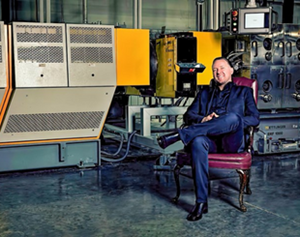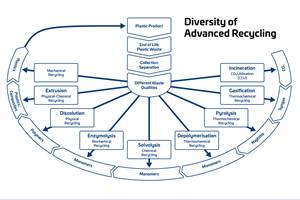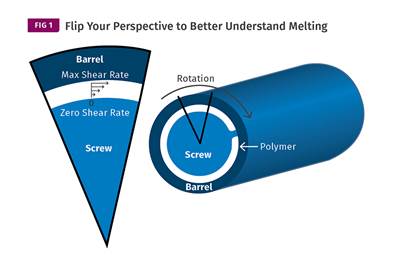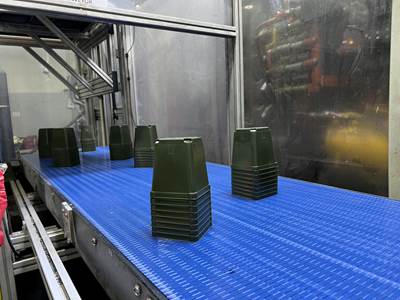From whence it came—group promotes plastics-to-oil tech
Can plastics-to-oil technology supply an answer to plastics lingering end-of-life issues?
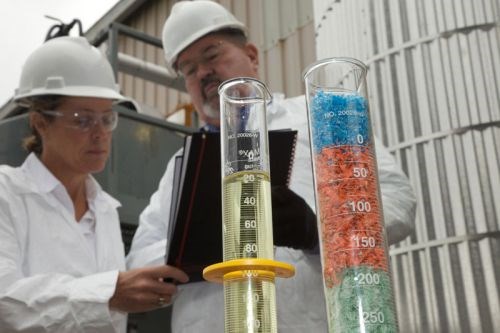
A trio of waste-plastics-to-oil startups represents the founding members of a new American Chemistry Council Plastics Division group promoting the fledging end-of-life-plastics solution. The Plastics-to-Oil Technologies Alliance includes Agilyx Corp. (Beaverton, Oregon), Cynar Plc (London) and RES Polyflow (Akron, Ohio)—early players in a space that is growing globally.
Last August, the ACC released a report on plastics to oil that it commissioned from solid-waste management consultants Gershman, Brickner & Bratton (Fairfax, Virg.). That study found that at the time, there were 21 companies working in plastics to oil in the U.S., with more than 21 pilot and demonstration facilities, and 17 commercial-scale facilities under development or in the construction phase.
Globally, the report said there were 147 companies offering gasification technologies in different stages of development, with most of these companies marketing their technologies in the U.S. through licensees.
Plastics continue to have end-of-life issues and any efforts that keep these materials out of landfills, oceans, or the nearest tree are ultimately good for the industry. Plastics-to-oil is particularly interesting in that it often targets the mixed smorgasbord of leftover resins found in landfills when the most regularly recycled streams—like PET and PE—have already been reclaimed.
Plastics-to-oil alliance
Agilyx describes itself as an alternative energy company with five patents on its four-step process. Those process steps (indirect heating of waste, gasification, condensation, transfer/storage) primarily produce ultra-sweet synthetic crude that can be further refined onsite or at existing refineries. The company says it’s been operating at a commercial scale for more than two years, and early investors included Waste Management upstream and Total downstream.
Cynar’s system loads waste plastic from a hot-melt infeed directly into a pyrolysis chamber. Here as well, resulting vapor fractions are converted into distillates and passed to recovery tanks. Syn gas, however, is diverted through a scrubber and then back into the furnaces to heat the pyrolysis chamber for closed loop energy. The London-based firm says it can process 20 metric tons of plastic waste per day, producing around 19,000 liters of liquid fuels at a conversion rate of 95%. Cynar pegs each plant’s annual throughput at 6000 metric tons.
RES Polyflow also uses a process vessel, which can handle mixed polymer waste streams with capacity of 60 tons/day. The company claims to make material preparation less labor and capital intensive, resulting in higher potential profitability.
Keep an eye on crude oil, shale
Regardless of the technology employed, fuel costs, in particular crude oil, will ultimately determine the economic feasibility, and business success, of these efforts. Crude oil prices are lower at the start of 2013, dropping from $110/barrel last September to around $92/bbl today, but even at that price, Agilyx for one, says it can compete. According to a greentechmedia report, CEO Chris Ulum told a forum in 2011 that Agilyx’s fuel was competitive with oil priced down to $65 to $70 barrel (a price range not seen since mid-2009 amidst the financial crisis).
Just a few years ago, oil was expected to reach its production peak, with prices continuously rising as production continuously fell, but extraction of gas and oil from shale formations seems to have forestalled impact with that hydrocarbon wall (today no less a resource than BP told Bloomberg that the U.S. will be energy self-sufficient by 2035 thanks to shale exploitation).
Clean tech once again equals “green”
Does the U.S.’s new found bounty of fossil fuels mean lean days for clean technology, including plastics-to-oil and alternative fuels? A report published by the Cleantech Group on Jan. 13 found that after several years of decline, venture capital was once again flowing into the clean-tech space, despite the shale hype.
Based on preliminary data, total clean-tech investment in 2013 hit $6.3 billion, rising in each quarter after falling for five consecutive quarters going back to the end of 2011. Despite those 2013 gains, the total figure was still off 15% compared to 2012.
Whatever happens in the broader space, Steve Russell, vice president of plastics for the ACC made his case for plastics-to-oil in a release, noting the emerging sector’s promising possibilities for plastics.
“Not all plastics can be recycled in a way that’s economically and environmentally efficient,” Russell stated. “Emerging technologies that can convert waste into electricity, higher value fuels and chemicals can help us capture plastics’ high-energy value and put it to work to help power communities across America.”
Related Content
A Recycling Plant, Renewed
Reinvention is essential at Capital Polymers, a toll recycler that has completely transformed its operation in a short period of time.
Read MoreHow to Extrusion Blow Mold PHA/PLA Blends
You need to pay attention to the inherent characteristics of biopolymers PHA/PLA materials when setting process parameters to realize better and more consistent outcomes.
Read MoreCompatibilizers Aid Recycling & Upcycling of Mixed Resins
Compatibilizers are proving their worth in boosting critical properties such as impact/stiffness balance of PCR and PIR blends of polyolefins and other plastics.
Read MoreAdvanced Recycling: Beyond Pyrolysis
Consumer-product brand owners increasingly see advanced chemical recycling as a necessary complement to mechanical recycling if they are to meet ambitious goals for a circular economy in the next decade. Dozens of technology providers are developing new technologies to overcome the limitations of existing pyrolysis methods and to commercialize various alternative approaches to chemical recycling of plastics.
Read MoreRead Next
People 4.0 – How to Get Buy-In from Your Staff for Industry 4.0 Systems
Implementing a production monitoring system as the foundation of a ‘smart factory’ is about integrating people with new technology as much as it is about integrating machines and computers. Here are tips from a company that has gone through the process.
Read MoreUnderstanding Melting in Single-Screw Extruders
You can better visualize the melting process by “flipping” the observation point so that the barrel appears to be turning clockwise around a stationary screw.
Read MoreProcessor Turns to AI to Help Keep Machines Humming
At captive processor McConkey, a new generation of artificial intelligence models, highlighted by ChatGPT, is helping it wade through the shortage of skilled labor and keep its production lines churning out good parts.
Read More







.png;maxWidth=300;quality=90)











